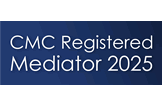
All About People
Need help to resolve your business, personal or employee conflicts & disputes?
Stay up to date with our latest news and workshops.

Inclusive leadership is more than just a management style; it's a commitment to ensuring that every individual feels valued, respected, and included within the organisation. This responsibility does not rest solely on senior leadership but extends to every member of the team, particularly line managers who are on the front lines of people management. Line managers must be equipped to lead with empathy, actively promote diversity, and address any signs of exclusion or discrimination.
An inclusive organisational culture thrives when every individual, from the top down, is accountable for their actions. Line managers play a critical role in this by setting the tone for their teams, modelling inclusive behaviours, and holding their teams accountable to the same standards. This proactive approach helps prevent conflicts from escalating and ensures a supportive environment where all employees can thrive.
Conflict in the workplace is inevitable, particularly in diverse environments where different perspectives and backgrounds converge. The key is not to avoid conflict but to manage it effectively. Conflict that arises due to a lack of equity, diversity, and inclusion (EDI) practices can have serious repercussions, including increased grievances, limited promotion opportunities, and experiences of harassment and bullying.
The Workforce Race Equality Standard (WRES) 2023 highlights persistent disparities in the NHS, particularly for Black and minority ethnic (BME) staff. For instance, BME staff are less likely to believe that their organisation provides equal opportunities for career progression, and therefore, experience higher levels of harassment and discrimination compared to their white colleagues. Whilst this study only highlights issues within the NHS, these issues are found in workplaces across the UK and underscore the importance of inclusive leadership in addressing and resolving conflicts that stem from inequality.
Examples of conflicts related to EDI include age and generational differences, ethnic and cultural differences, lack of acceptance of LGBTQIA+ individuals, and discrimination based on disability. Addressing these conflicts requires a nuanced understanding of the underlying issues and a commitment to fostering an inclusive environment.
“Line managers are expected to be proactive in identifying and addressing conflicts within their teams” says Geoffrey. “This involves recognising the early signs of conflict, whether it be overdone /extreme disagreements which becomes personal and emotionally or more subtle forms of resentment and avoidance. Line managers should encourage open communication and provide a safe space for employees to express their concerns.”
The Thomas-Kilmann Conflict Model outlines five strategies for conflict resolution: avoiding, competing, accommodating, compromising, and collaborating. While each strategy has its place, collaboration is often the most effective in resolving workplace conflicts as it encourages all parties to work together towards a mutually beneficial solution.
Effective conflict resolution involves three key steps:
HR plays a crucial role in conflict resolution by ensuring that there are clear dispute resolution policies in place. Before escalating to formal grievance procedures, HR should work with line managers to resolve conflicts and help employees come to a compromise which might extend to mediation. This mediation can be internal or involve external mediators, depending on the situation.
At All About People, we can support you with this. Mediation is most effective when it is voluntary, confidential, and centred around the needs and interests of the parties involved. We provide a non-judgmental space where employees can work towards a positive outcome together.
In fostering a positive workplace culture, the role of inclusive leadership and effective conflict resolution cannot be overstated. By ensuring that all employees feel valued and supported, organisations can prevent conflicts from arising and create an environment where everyone has the opportunity to succeed.
At All About People, we have a range of interventions to support organisations and individuals in dealing with workplace disputes and differences. These include conflicting management coaching, mediation and dispute resolution for specific cases and learning and development programmes to enable individuals and teams manage effectively and proactively when disputes and differences arise.
Posted: 11th October 2024

Strategic Advice and Guidance for you and your organisation. Our accreditations:




Stay up to date with our latest news and workshops.